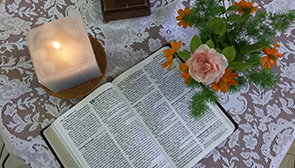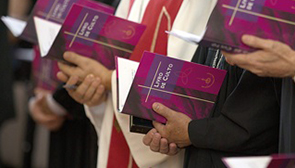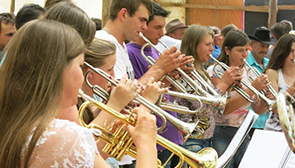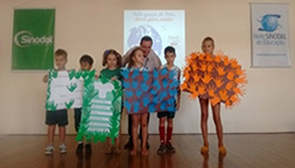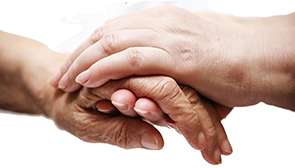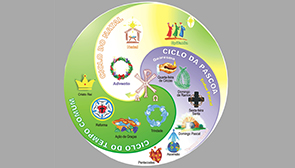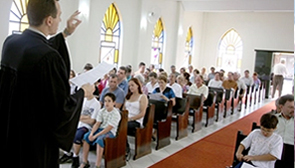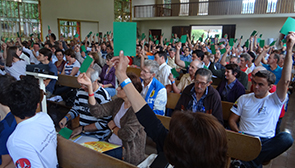
Bible Study 8
WE ARE ON THE ROAD
Rev. Yamilka Hernández Guzmán
Iglesia Evangélica Unida em Cuba (Sínodod Luterano)- IESUL
Texto: Luke 24:13-35
Traducción: Elisa Pérez Trejo
Context: This passage is unique. Only Luke includes in his Gospel this passage that relates the meeting of two disciples with the risen Lord; and that it is a lectionary part for the Easter season.
These two disciples are living a really dramatic situation. They return home after the death of the one for whom they had abandoned their security of their home to follow him. Without a doubt, this homecoming was already being the worst walk of their lives, not because of the 10 kilometers they would have to travel, but also the accumulation of negative feelings that were within them. Sadness, fear, insecurity would undoubtedly make the road longer and more tiring. The cruelty of the acts occurred in Jerusalem have left them without explanations, without security. There is no other way but to return home, heartbroken and dejected.
All these feelings were transformed from lament to dance and joy to the encounter with the Risen Lord. This story is well known, but today I invite you to look with other eyes and get closer to what the text does NOT say.
From verse 13 we know that there were two walkers in this story.
Questions:
1. Verse 18: What is the name of the other disciple. Not mentioned
2. From verse 19 a dialogue is established with them, note that the answers are given in the plural: us (verses 19,21, 22, 24,25, 29, 32). Which of the two is the one who speaks at each moment, or only one speaks on behalf of both.
3. Verse 29: Who lived in the house: the two disciples.
4. Verse 30: Which of the two made the bread that was consumed at dinner with the Lord: Neither mentioned.
Let's analyze the facts: There are two unanswered questions. Both point to the identity of the second of the disciples. According to Jewish tradition, bread was made in houses by women, only in large cities such as Jerusalem the bread was sold on the street. Then there is a possibility that the other disciple was a woman. But SHE who is.
It is mentioned only once in John 19:25 SHE is Mary the wife of Cleophas.
Our reality:
This fact, which may seem like involuntary forgetfulness, contains behind an act of violence. At different times the idea has prevailed that women have a subordinate position in all human groups. Patriarchal cultural patterns prevailed through which the knowledge pertaining to men is monopolized, which will allow it to subdue, dominate, enslave, exploit by nature the opposite sex. The history of women is the history of discrimination. That is why it is necessary to talk a little about the women who lived before, we must recover the genealogy of women, rebuild their participation.
Reconstructing women's participation means recovering, understanding and learning from women's experiences, knowledge. It is also necessary to know the importance of our social value, the importance of women's work in the world economy, not of salaried work, performed by both men and women, but of domestic work on which one of the greatest social injustices is based.
Letting women speak to say who they are, to break the silence that hides them and because the construction of gender is at the same time the result of a process of representation and self-representation. There is a false paradigm, which is based on ignorance or intentional absence of the presence of women and their works. The silence towards women has been too long, it is centuries and centuries of exclusion that we have in our lives; Furthermore, we must, even if only a few brushstrokes, know and recognize the women who preceded us.
To reflect:
1. How to break the silence that hides the participation of women?
2. Are there stories of women in our church that might be helpful to rescue?
3. Does my life story have points in common with the story of Maria (Cleofas' wife)?
4. What can I do to avoid being anonymous?
I leave you as a gift these three phrases that can help you in this reflection:
• In the universe, tyranny and injustice have started with the infinitely small. (Saadi)
• The chains that oppress us are the ones that weigh the least. (Madame De Swetchine)
No one will take advantaged of us.


